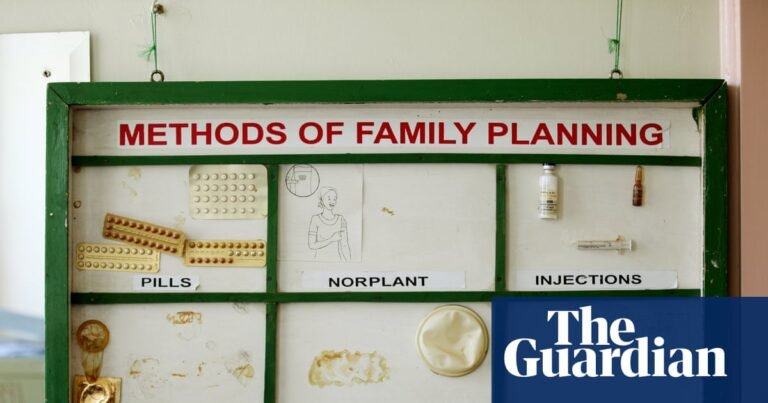A decision by the US government to incinerate more than $9.7m (£7.3m) of contraceptives is projected to result in 174,000 unintended pregnancies and 56,000 unsafe abortions in five African countries.
More than three-quarters of the contraceptives (77%) were destined for the Democratic Republic of the Congo, Kenya, Tanzania, Zambia and Mali, according to the International Planned Parenthood Federation (IPPF), an NGO global healthcare provider and advocate of sexual and reproductive rights.
The contraceptives, many of which will not expire until 2027-29, had already been manufactured, packaged and ready for distribution. IPPF offered to take them for redistribution at no cost to the US taxpayer, but the offer was declined.
Their destruction will deny more than 1.4 million women and girls in the five countries access to lifesaving care, IPPF said.
Marie Evelyne Petrus-Barry, the Africa regional director of IPPF, said: “This decision to destroy ready-to-use commodities is appalling and extremely wasteful. These lifesaving medical supplies were destined to countries where access to reproductive care is already limited, and in some cases, part of a broader humanitarian response, such as in the DRC. The choice to incinerate them is unjustifiable.”
As a result of the decision, more than 1m injectable contraceptives and 365,100 implants will not be distributed in Tanzania, 28% of the total annual need in the country.
Dr Bakari, a project coordinator at Umati, IPPF’s member association in Tanzania, said: “We are facing a major challenge. The impact of the USAID funding cuts has already significantly affected the provision of sexual and reproductive health services in Tanzania, leading to a shortage of contraceptive commodities, especially implants. This shortage has directly impacted clients’ choices regarding family planning uptake.”
In Mali, women will be denied access to 1.2m oral contraceptives and 95,800 implants, amounting to almost a quarter (24%) of the country’s annual need.
In Zambia, women will go without 48,400 implants and 295,000 injectable contraceptives, while in Kenya 108,000 women will not have access to contraceptive implants.
Nelly Munyasia, the executive director for the Reproductive Health Network in Kenya, said the impact of USAID cuts was already being felt in the country. Stockpiles of long-term contraceptives had already run out, she said, which will have drastic consequences on women’s health and their sexual and reproductive rights. Meanwhile, the skill set of health workers is being reduced and there is a 46% funding gap in Kenya’s national family planning programme.
skip past newsletter promotion
Nesrine Malik and Jason Okundaye deliver your weekly dose of Black life and culture from around the world
Privacy Notice: Newsletters may contain info about charities, online ads, and content funded by outside parties. For more information see our Privacy Policy. We use Google reCaptcha to protect our website and the Google Privacy Policy and Terms of Service apply.
after newsletter promotion
“These systemic setbacks come at a time when unmet need for contraception remains high,” she said. “Nearly one in five girls aged 15 to 19 are already pregnant or has given birth. Unsafe abortions remain among the five leading causes of maternal deaths in Kenya.
While the Kenyan constitution, adopted in 2010, allows for abortion when a pregnant person’s life or health is at risk, the Kenyan penal code of 1963 still criminalises it. Healthcare providers are reluctant to provide safe care while the penal code remains in place, even in emergencies. Munyasia said without adequate supplies of contraceptives there would be a rise in maternal mortality as a result of women seeking to end unintended pregnancies.
Last month, a US state department spokesperson confirmed that the decision to destroy the contraceptives had been made. Amid reports that the contraceptives were due to be incinerated in France, the French government said it was “following the situation closely” after feminist, rights and family planning groups expressed outrage at the proposal.
The department decided to destroy the contraceptives because it could not sell them to any “eligible buyers”, in part because of US laws and rules that prohibit sending US aid to organisations that provide abortion services, counsel people about the procedure or advocate for the right to it overseas, according to the state department spokesperson.
